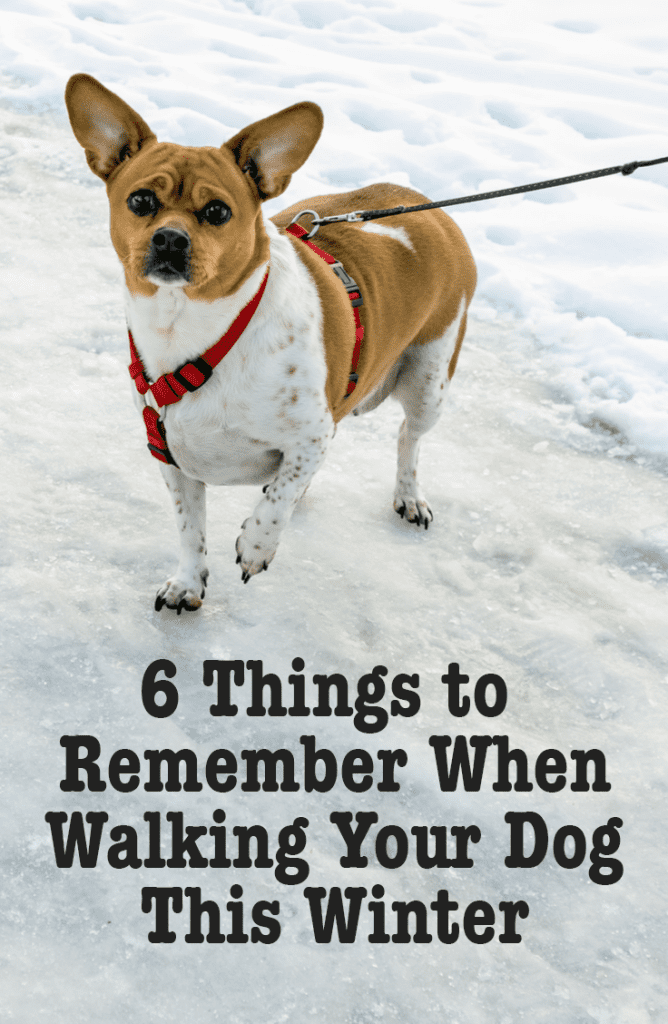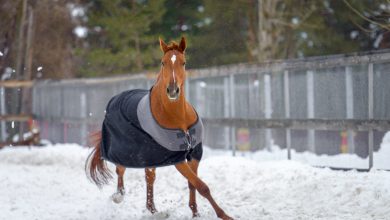6 Things to Remember Before Walking Your Dog this Winter
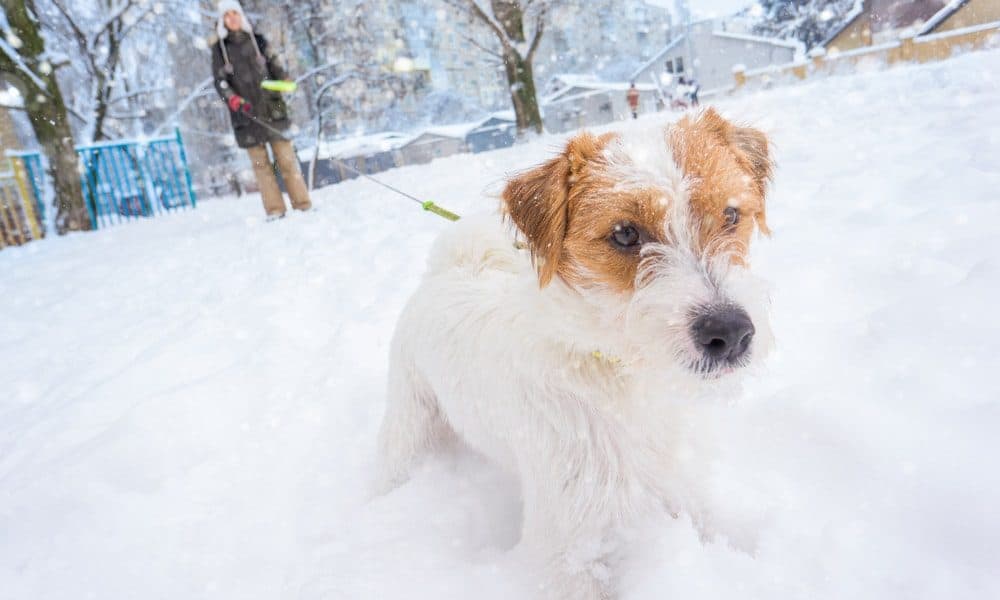
Whether your dog absolutely loves the winter weather and can’t wait to get outside, or he prefers to snuggle up inside where it’s warm, one thing all dogs have in common is a need to be protected during winter walks.
Luckily, it’s easy to keep your pup safe and happy when you follow these 6 tips!
The Dogington Post is reader-supported. That means, if you make a purchase through links on our site, we may earn an affiliate commission.
1. Bundle Up!
While it may seem obvious to make sure you’re properly bundled up before heading out to walk your dog, being properly dressed for cold weather is about much more than just your comfort. It’s about safety, too! Whether it’s 60-degrees or 6, make sure you’re appropriately dressed for your own safety and that of your dog, too. Wear comfortable shoes that won’t slip and slide on ice and snow (especially if your dog tends to pull!). Keep hands warm with mittens or gloves so that you don’t lose your grip on the leash. Remember, to best protect your dog during harsh winter weather, you’ll need to keep yourself protected, too.
2. Bundle Your Dog Up!
Although some dog breeds (like Alaskan Malamutes, Huskies, and Saint Bernards) are perfectly suited to venture out into the cold au naturale, many dogs will be safer and more comfortable with a coat or sweater to protect them from the elements. Aside from small dogs and dogs with short hair, those that are very young, very old, or with any illness or physical disability that would limit their ability to keep themselves warm should bundle up before heading outside in the cold of winter. If the air is cold, but dry, you might opt for a cozy sweater. Or, if it’s rainy or snowy out, a rain-slicker or water-resistant coat would be a better choice.
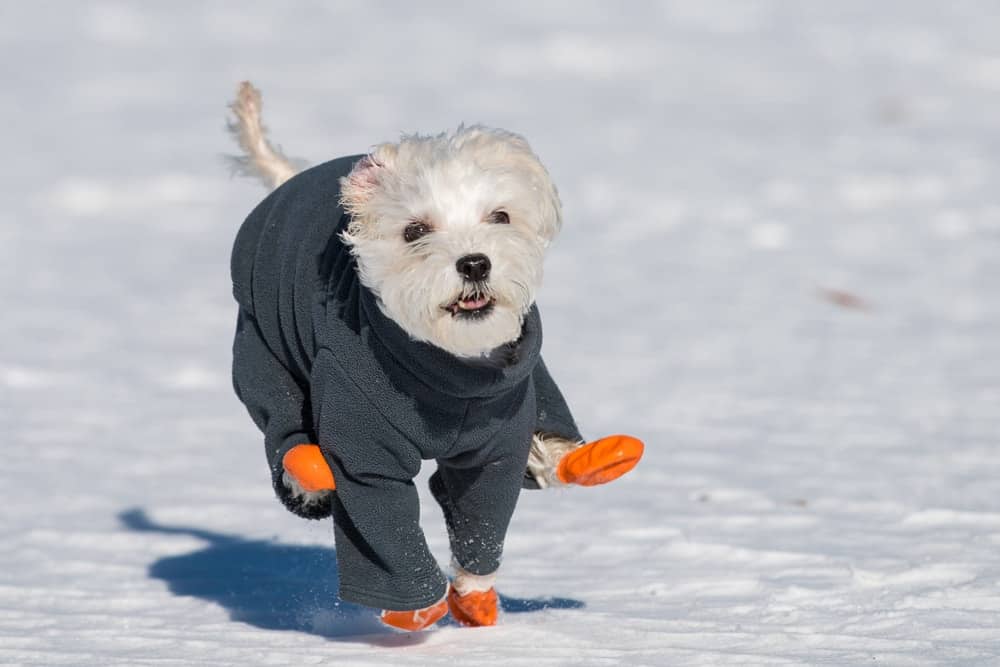
3. Protect the Paws!
Yes, your dog’s paws are pretty amazing, but they aren’t immune to the blistering cold and they must be protected from potential dangers like ice, snow, salts, ice-melting chemicals, and sharp objects hidden beneath the snow. If your dog will tolerate them (and it may take some training) the very best winter walking defense is a pair of water-resistant dog booties. But, some dogs simply flat-out refuse to wear their shoes. For those pups that won’t wear booties, always use a paw protectant, like Musher’s Secret to protect those precious paws. And, when you return from your walk, give those paws a good washing to remove any ice or snow that may have built up between toes and to rinse away any salts or toxic chemicals that may have been stepped in.
4. Always Use a Leash!
Even if your dog is 100% trustworthy and has never run off, never attempt to walk him in winter weather without a leash. Ice and snow on the ground can make it difficult for a lost dog to find his way back home and, limited visibility can make it difficult for others to see you. For an added layer of protection in the winter, use a jogger’s leash or one that clips to your belt or over-the-shoulder. This way, should you slip on ice or snow, there’s no risk of dropping the leash and losing your pup. People with dogs that have a tendency to pull should consider using a no-pull harness, especially in ice and snow when the ground becomes slippery.
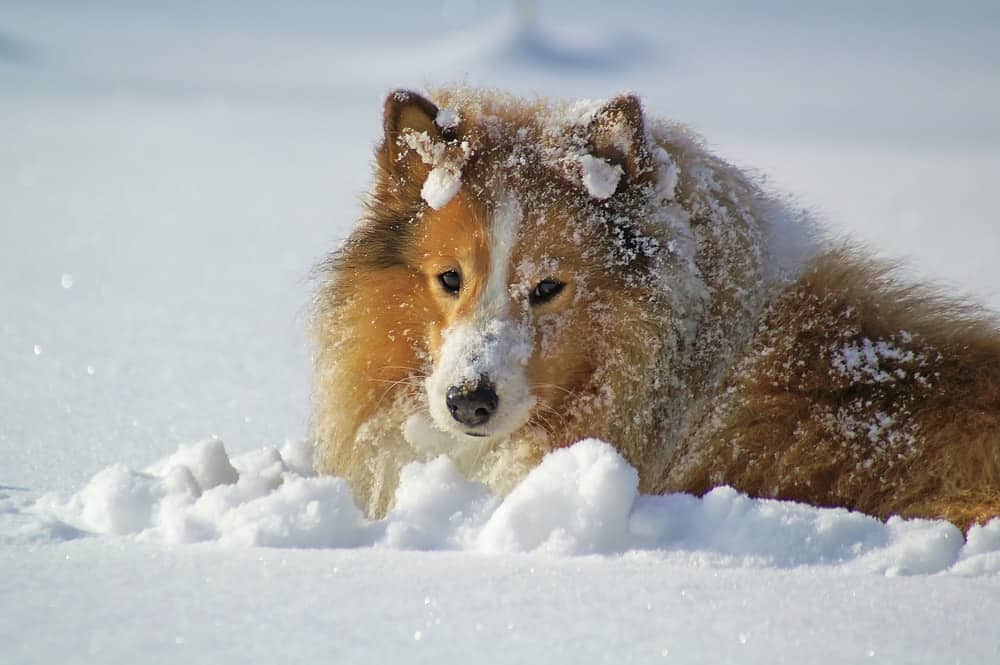
5. Avoid Potential Dangers!
Stay away from ponds, even when they appear completely frozen solid. Follow paths and sidewalks that you’re familiar with, as snow cover may hide uneven walkways, tree limbs, or sharp objects that could injure you or your dog. Avoid driveways where antifreeze may have dripped. Stay clear of freshly salted or de-iced roads, especially if your dog isn’t wearing protective booties, as salts and chemicals can be irritating to the skin at the very least, or life-threatening at most. Remember to use pet-safe ice melter on your own driveway and sidewalks and encourage surrounding neighbors to do the same.
6. Listen to Your Dog!
While some dogs make it very obvious when they’re not interested in being out in the cold or snow, others may give more subtle signs that they’re uncomfortable. If your dog appears to be shivering or shaking, gives any indication that she’s afraid or hesitant, or tries to pull you back toward home, don’t force her to take the walk. Instead, take her back home to warm up and try exercising her indoors!
How do you protect your dog during wintery walks? Please share in a comment below!
Enjoyed this article? Pin it!
